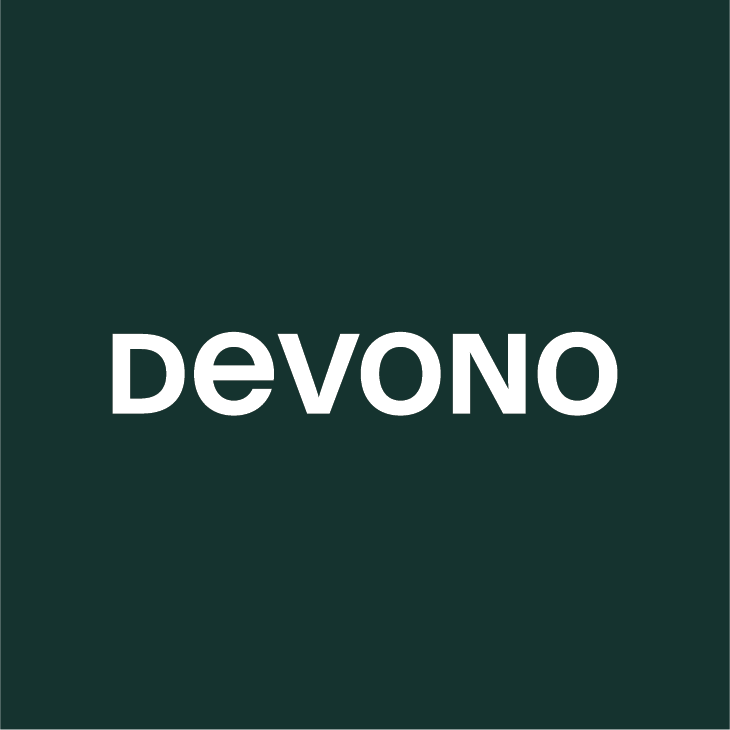

DeVono

London Borough of Camden, United Kingdom
September 2023
Other professional, scientific & tech
Service with Minor Environmental Footprint
United Kingdom
The workplace is under great pressure to perform and be all things to everyone – and it is our business to understand this challenge and the implications. DeVono is the UK’s leading occupier-only consultancy firm. We specialise in providing real estate solutions to support our clients’ complex and specific business objectives. Fully understanding our clients business and its future strategy is key to defining real estate requirements. Taking into account key factors such as talent challenges, headcount forecasts, operational priorities and cost considerations we craft a workplace brief that is not just fit for today, but delivers a sustainable future footprint strategy. Success is not defined by just the signing of a lease; it’s about ensuring that a client’s work culture is positively influenced, an engaged workforce and ultimately providing a real estate platform for future growth. Our team cares about leaving a lasting and positive impact on our clients. Our Story DeVono is a growing family, with big ambitions, voted one of the best places to work in property, guided by a set of core principles which define the way we work as one united team, in partnership with our clients. We believe in creating long-lasting relationships, safeguarding the wellbeing of each other an
Overall B Impact Score
Governance 20.2
Governance evaluates a company's overall mission, engagement around its social/environmental impact, ethics, and transparency. This section also evaluates the ability of a company to protect their mission and formally consider stakeholders in decision making through their corporate structure (e.g. benefit corporation) or corporate governing documents.
What is this? A company with an Impact Business Model is intentionally designed to create a specific positive outcome for one of its stakeholders - such as workers, community, environment, or customers.
Workers 34.4
Workers evaluates a company’s contributions to its employees’ financial security, health & safety, wellness, career development, and engagement & satisfaction. In addition, this section recognizes business models designed to benefit workers, such as companies that are at least 40% owned by non-executive employees and those that have workforce development programs to support individuals with barriers to employment.
Community 23.8
Community evaluates a company’s engagement with and impact on the communities in which it operates, hires from, and sources from. Topics include diversity, equity & inclusion, economic impact, civic engagement, charitable giving, and supply chain management. In addition, this section recognizes business models that are designed to address specific community-oriented problems, such as poverty alleviation through fair trade sourcing or distribution via microenterprises, producer cooperative models, locally focused economic development, and formal charitable giving commitments.
Environment 8.8
Environment evaluates a company’s overall environmental management practices as well as its impact on the air, climate, water, land, and biodiversity. This includes the direct impact of a company’s operations and, when applicable its supply chain and distribution channels. This section also recognizes companies with environmentally innovative production processes and those that sell products or services that have a positive environmental impact. Some examples might include products and services that create renewable energy, reduce consumption or waste, conserve land or wildlife, provide less toxic alternatives to the market, or educate people about environmental problems.
Customers 3.6
Customers evaluates a company’s stewardship of its customers through the quality of its products and services, ethical marketing, data privacy and security, and feedback channels. In addition, this section recognizes products or services that are designed to address a particular social problem for or through its customers, such as health or educational products, arts & media products, serving underserved customers/clients, and services that improve the social impact of other businesses or organizations.